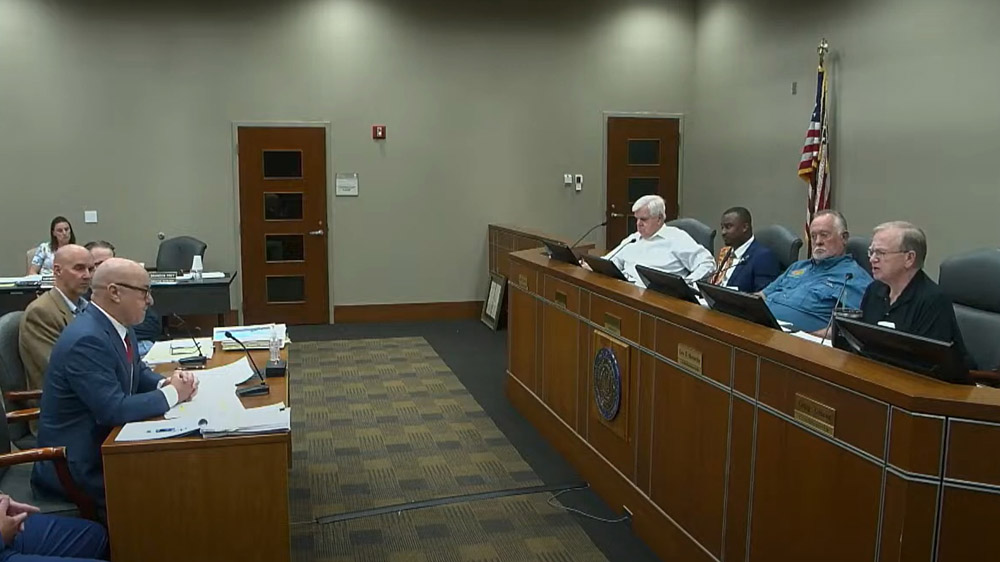The Bonneville Power Administration is ramping up its engagement with the West-Wide Governance Pathways Initiative, an executive with the federal power agency said July 18.
That means BPA will shift from a previous stance of mostly monitoring developments in the Pathways Initiative to fully participating in its looming efforts to change California law to relax some provisions of CAISO’s state-run governance and shape a new “regional organization” (RO) to oversee a Western electricity market based on the ISO’s Western Energy Imbalance Market (WEIM) and Extended Day-Ahead Market (EDAM).
However, the stepped-up involvement in Pathways doesn’t signal a change in BPA staff’s “leaning,” issued in April, recommending that the agency choose SPP’s Markets+ over EDAM when it opts to join a day-ahead market, according to Doug Marker, an intergovernmental affairs strategist at BPA. (See BPA Staff Recommends Markets+ over EDAM.)
“This does not represent a change in our staff recommendation, nor an endorsement of EDAM or the Pathways conclusions, but we feel it’s important to be involved to understand the issues that are shaping the structure of Pathways,” Marker said during a BPA day-ahead markets workshop.
“At the end of the day, should this be successful — and obviously we share the objective for bringing independence to CAISO market governance — we will have customers who are served through the markets that are governed through this process, and we will at least be a neighboring entity for the market,” he said.
Marker said BPA declined to participate in Step 1 of the Pathways effort, which crafted a plan to elevate the authority of the WEIM’s Governing Body to the greatest extent possible without altering California law, because it was heavily involved in drafting a tariff for Markets+. SPP filed the proposed tariff with FERC in late March. (See SPP Files Proposed Markets+ Tariff at FERC.)
CAISO last month kicked off the stakeholder process for adopting the Pathways Step 1 proposal, and Marker noted that BPA had submitted comments after the first meeting in that effort. (See CAISO Kicks off Stakeholder Process for Pathways Initiative.)
BPA is expanding its engagement just as Pathways begins to pursue parallel “work streams” in Step 2 of its effort. (See Busy Summer Ahead for Pathways Initiative.) Marker said the agency assigned staff to four of the initiative’s six newly created workgroups, including those dealing with CAISO tariff analysis, stakeholder processes, RO governance and public interest issues, “which is really talking about the role of a states committee and possibly consumer advocates in the governance structure for the RO.”
“We’ve said we want two viable options, and so we are participating from the perspective of improving the viability of the EDAM alternative,” he said.
‘Material Difference’
Marker said it’s important to BPA that Pathways’ discussions “be done as transparently as possible,” echoing a criticism that some stakeholders have shared with RTO Insider: that much of the effort has been developed in closed-door meetings, punctuated by monthly public progress reports. (Pathways participants have pointed out that all votes by the group will be held publicly.)
“So, we urge the Pathways’ Launch Committee to make the workgroup meetings open. It was a decision for us to participate even if the meetings are not open, but we think that the open meetings improve the transparency and the ultimate strength of the proposals that emerge from it,” Marker said.
That last comment prompted a sharp response from Launch Committee Co-Chair Pam Sporborg, director of transmission and market services at Portland General Electric.
“I’ll note that Pathways is not a decision-making body,” Sporborg said. “We’re a temporary volunteer group that is coming together to suggest ideas and concepts to formal decision makers across the west, to the CAISO board, California elected officials and to the broader West. We’re not drafting a tariff like Markets+. We’re not a formal stakeholder process. We have turned over our recommendations to that formal [CAISO] stakeholder process, which is ongoing, as you noted.”
Sporborg pointed out that BPA has participated in efforts with a similar process of public and non-public meetings, such as the Western Power Pool’s Western Resource Adequacy Program (WRAP) and Western Transmission Expansion Coalition (WestTEC).
“It seems interesting to call out Pathways uniquely, given that Bonneville’s participation in those other structures that really have a steering committee focus and do hold those kinds of private coordinating meetings with separate and intentional opportunities for public engagement,” she said.
BPA Director of Market Initiatives Russ Mantifel, who’s been leading the agency’s day-ahead markets process, countered that he thinks the process for developing Markets+ was transparent from the beginning, with publicly noticed meetings and open invitations to any concerned parties.
“In terms of WRAP and WestTEC, I don’t think it’s Bonneville that is asking for those things not to be public. In addition to [the Western Markets Exploratory Group], as well, we were open to everything being open,” Mantifel said, adding that Bonneville is required to be transparent and that “raising the bar” on transparency “is what we should be doing.”
“I also think that the Pathways Initiative is explicitly trying to develop a market that will set the prices for every consumer in the Western Interconnection,” he continued. “At least that’s what we’ve heard: that the goal is to create a single market and the benefits are assuming a single market that’s serving load to every retail load in the West. So, I think that that is a material difference.”
